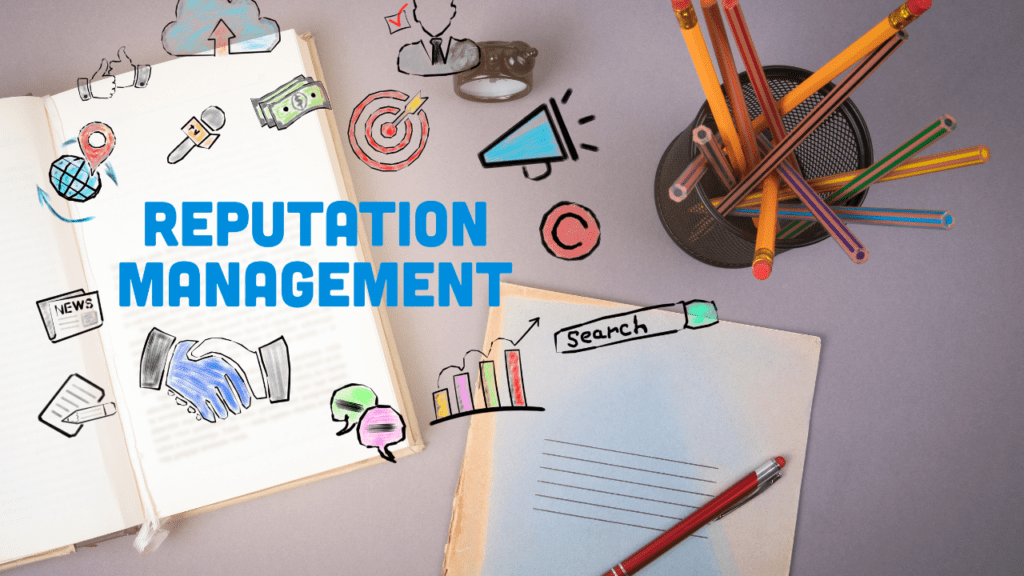
If your reputation or the reputation of your business gets trashed online, it can have a lasting impact. But there are things that you can do today to limit the impact of negative online statements about you and some of them are easier than you might expect.
Our guest today is Chris Silver Smith. Chris is the CEO of Argent Media, a marketing agency focused heavily on reputation management where Chris helps people clean up their reputations in search engines. Chris has also served as an expert witness in defamation lawsuits in state and federal court. In his long time column at Search Engine Land, he has advocated for reputation victims.
“People are surprised at how easy it is for their reputation to suddenly become tarnished.” - Chris Silver Smith Share on XShow Notes:
 [1:00] – Chris started his career in internet marketing and designing. He also worked for Verizon for many years and eventually made his way into researching and developing SEO (search engine optimization).
[1:00] – Chris started his career in internet marketing and designing. He also worked for Verizon for many years and eventually made his way into researching and developing SEO (search engine optimization).- [2:28] – After working for Verizon, he moved on to working for SEO companies and became intrigued by reputation management which was predicted to be fast-growing.
- [3:37] – Reputation management is compelling to Chris because of the personal stories that get involved with it.
- [4:20] – Reputation management could mean helping companies whose CEOs may have made a social media mistake or even smaller companies who have negative reviews.
- [5:48] – Chris shares a story about a CEO who was accused of many things by an escort and truly had not done the things he was accused of.
- [6:50] – Sometimes the bad reputation is because of actual unwise decisions that people have made.
- [7:35] – Chris says that his most memorable personal case was a porn revenge situation who was a trafficking victim. Chris wound up working as an expert witness for free.
- [9:30] – The woman did eventually get away from her harasser and he followed through with his threats of ruining her reputation. But she won the lawsuit and felt that her negative reputation was completely created by her harasser.
- [10:40] – There are more common reputation management cases that Chris has seen several times, such as college or high school students getting in trouble with the police.
- [11:21] – When I say reputation management, usually that means something bad appears when you google someone’s name.
- [12:33] – Chris has dealt many times with fake mugshot sites that post mugshots and charge a fee for people to take them down.
- [13:45] – After Google de-optimized these mugshot sites, it is easier to take these posts down with Chris’s help.
- [15:39] – There’s so much out there and it is so easy to defame people on the internet.
- [17:11] – Chris references the story of the sex trafficking victim to answer how some of these reputation management victims don’t care about the money. They really want their reputation cleared and prove that the accusations are false.
- [20:10] – People who have had their reputation damaged or attacked often have a really severe emotional response to it and are referred to counseling.
- [21:20] – People are surprised at how easy it is for their reputation to suddenly become tarnished.
- [22:24] – It is important to know the difference between your public persona and a private one and curate what you put up publicly. Maintaining this can come in handy when your reputation is attacked.
- [23:34] – Chris shares a story about a competitor who purchased the domain name for his new business and how he was able to amicably solve the problem.
- [26:04] – A strong online presence is a good idea. You should have a personal website and periodically Google your name.
- [26:50] – Chris recommends using Tumblr, Flickr, and YouTube under your name that could help create an online presence that would show up in the search results.
- [28:31] – Even informal stuff is great for basic SEO. Use your name as often as you can.
- [29:00] – It may feel like you’re overhyping yourself, but that’s optimization. Search engines work off text.
- [30:02] – Facebook is great because you can have a personal page for friends and family but can simultaneously have a business page.
- [31:47] – Chris shares many examples of common mistakes people make when video and audio is being recorded.
- [32:50] – Remember that every single thing you do publicly now is likely to be recorded and can be uploaded either on purpose or accidentally.
- [33:10] – Chris shares a story of employees who were connected to a man who ran a cult. They disclosed it and moved on.
- [35:02] – Chris’s wife’s name is Karen and now there are many memes and negativity surrounding the name.
- [36:51] – There are quite a few businesses out there that accidentally get sucked into the news because of their names when they really have no connection. Chris calls this name collision.
- [38:39] – There is a cost with fixing a damaged reputation and sometimes it is less costly to change names and move on.
- [39:47] – Chris has worked cases with restaurant chains that has actually resulted in some policy change within the companies.
- [42:32] – It is better to get ahead of the curve if you can.
- [43:40] – It is good to go ahead and claim your name for a personal webpage and on social media in case you ever need it. Prepare and protect your reputation upfront instead of fixing it later on.
Thanks for joining us on Easy Prey. Be sure to subscribe to our podcast on iTunes and leave a nice review.
Links and Resources:
- Podcast Web Page
- Facebook Page
- whatismyipaddress.com
- Easy Prey on Instagram
- Easy Prey on Twitter
- Easy Prey on LinkedIn
- Easy Prey on YouTube
- Easy Prey on Pinterest
- Chris Silver Smith on Twitter
- Argent Media
- Search Engine Land
- Chris Silver Smith on LinkedIn
- Chris Silver Smith Web Page
Transcript:
Can you give me a background on how you got into reputation management? It seems to be this new emerging industry that's not like you can go to college for.
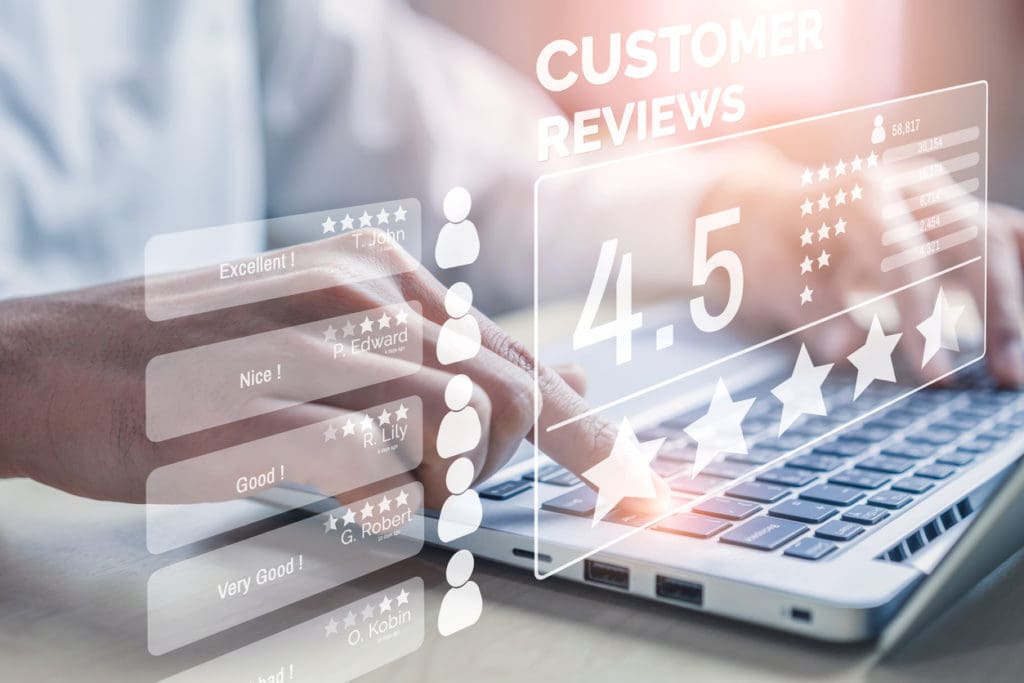
Absolutely. I started out my technical career going into internet marketing and internet design work. From there, I went into programming, designing, and doing all sorts of stuff. I worked for Verizon for about 10 years and ended up being the director of the technical division of one of their biggest websites, which was superpages.com.
I've heard of that.
Yeah. We worked on so many different things, but one of my pet projects was SEO. I was one of the first people within the Verizon company who took really heavy-duty research and development on SEO. Eventually, it got to be in vogue enough that the executives were like, “We really need someone to do this. Don't we have somebody that has that skill?” They let me go with a limited project and then they said, “This worked so well. Just do whatever you want. We don't really understand it. Just roll it out as much as you want, whatever you need.”
I was given a really carte blanche to do a massive SEO program, and we pulled in millions of dollars in the first year. Because of that, I've got Verizon's Personal Excellence Award. It's one of the few individual excellence awards that they give out—at that time, 200,000+ employees.
From doing SEO, I ended up leaving the company and going to work for a few search engine marketing agencies that were really fantastic to work with. Just as part of that, I got asked to help with a few reputation issues, either with those companies helping them or with some of their clients or friends. Even with some of my own friends, I helped out with some of that. I got more and more intrigued by it.
Then, I saw some research from the Kelsey Group that said that reputation management was set to become something like a $5 billion industry within a few years. I started thinking, this is something I see as a growing area of the Internet marketing niche. I launched my own business about nine years ago and was doing a mix of SEO. I still do some heavy-duty SEO, local search optimization stuff, online marketing stuff, and social media marketing. I got more and more focused on reputation management, and I just about won't take any other job now.
It's really super compelling to me because of the personal stories that get involved with it. Companies and individuals need some help with their online reputations frequently. It's unusual enough that just a straight SEO person doesn't always know the ins and outs of what they can do. I find it super compelling to help people out that are hurting, need some help, and deserve some help.
I went more and more into it and I've got quite a lot of clients over time doing it. I'm really enjoying helping people and companies out.
To me, it's really clear what reputation management is for businesses. Your CEO says something silly and you've got to try and clean it up. What does it mean for individuals, the reputation management?
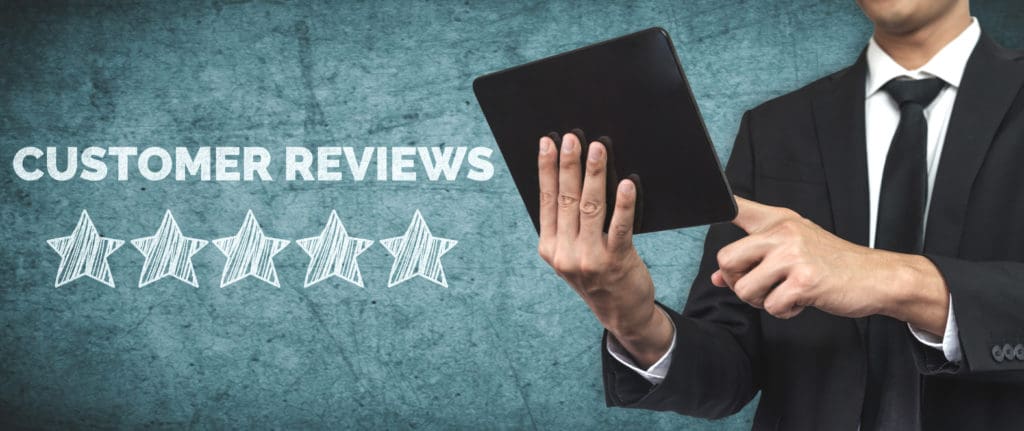
Well, I'll clarify slightly. It's not just when the CEO screws up. Although, I have worked on a few of those kinds of cases. It's also when a company doesn't have a whole lot about them and they just have negative reviews. Or, they're doing really well and they suddenly have a lawsuit that makes them look really bad in the search results.
Sometimes, I help out with things like that. Those companies that I help out frequently end up help me pay the bills, to help out individuals, and trying to keep the cost low for individuals that need some help that otherwise wouldn't find help out there.
It is the individuals that I find the most compelling. I have helped out some, like porn revenge victims, pro bono or at cost. There are a few people that I helped out, the very low cost because they need some help. I try to write some articles and explain to people how they can manage their online reputation so they can do it themselves to some degree.
You talk about some personal stories. What are some of the more dramatic personal stories? Obviously, you don't want to disclose your clients. Just the story, the background of what happened, and what you're able to do for them.
Inevitably, if you work for reputation management, you get approached by some people that their bad reputation is really, truly, their own fault. They've done something really stupid or a string of things that were stupid and bad. Sometimes, they get painted even worse than they actually were.
There was the CEO that got accused of horrible things by an escort that he had dallied with. I helped him out. The escort had attacked his family, his business. They mentioned his daughter's name—his nine-year-old daughter—his business partner, his parents, his wife. All sorts of people that had nothing to do with anything. As it turned out, he really didn't do the things that they had said that he did.
I take some of those cases on. If I don't think they're going to harm anyone, if I'm pretty convinced of that, then I'll take it on. I've taken on some people, a few CEOs that have done some things that were really unwise, one way or another. There are all sorts of lurid headlines out there.
I have been approached by celebrities and organizations that you have seen on CNN's headlines multiple times in the last year. Some of those I've taken and some of them I kind of said, “I don't think I can really help you.” If it's an ethics kind of conflict, I won't take it on.
I think the most compelling personal case that I took on was a porn revenge victim who was a sex trafficking victim in the United States. She was brought from Asia by her harasser, by her trafficker. He brought her into the false pretenses and she thought she would be able to go to nursing school. Instead, he had her working as an escort and then as a prostitute. He compelled her to do that by first drugging her, taking photographs of her, and in compelling situations when she was unconscious.
Then, he threatened if she didn't do what he said to release the photos and ruin her reputation online in her village back in Asia. I was asked to work as an expert witness on the legal case for that. I worked on it for free. The attorney that called me up said, “I've got this. You're going to work on it for free.” I said, “I don't know if I'm going to work on it for free.” He said, “I'm working on it for free.” Then, I took it seriously.
He said, “The complaint is really difficult to read.” I was thinking in terms of numbers of documents. I worked on trademark infringement cases that had reams, boxes and boxes and boxes of documents that just choked you. I said, “How many pages is the complaint?” He said, “A hundred.” I was like, “I don't think that's going to be a difficulty.”
But then, when I got three pages into it I literally went outside and threw up because of the horrendous things that were done to her, that she was forced to do. She eventually got away from her harasser through people recognizing the signs at the hospital. When she got away, he did indeed follow up with his threats, tried to warn her and her village in Asia. Her father tried to commit suicide; she tried to commit suicide. It was quite a day in court but we won a $7 million judgment against him. That was very gratifying to her. It was healing for her.
She felt like her reputation had been completely created by him. She chose to disclose her own name and made a few interviews on the courthouse steps afterward. She said that she was setting it right and she hadn't chosen to do this. It was horrendous. She took back some of her dignity by doing that. It was gratifying to work on that case.
That's the kind of compelling thing that I really want to be able to work on at times. Most things are not quite that extreme and dramatic.
What are the more common events that people have to deal with?

I worked on multiple instances where a college student or a high school student has gotten in trouble with the police. They have a mugshot or an arrest record and end up showing up in the search results. Even when the charges are dropped, even when the case has been expunged from the court system, sometimes those records still live on and haunt them when they're trying to get jobs, graduate from college and stuff.
I've worked on multiple cases of trying to displace mugshots in the search results. When I say displace or reputation management, usually that means that something bad appears when you Google somebody's name. I tried to help create a bunch of stuff that's good and positive to help push the negative stuff down so it's not just so visible.
It shouldn't be that some kid made some mistake and then that's the thing that defines them for the rest of their life. With a few exceptions, there are some rapists and things that I would not work for. But in many cases, it falls way short of something violent or short of something so horrendous that people shouldn't have a second chance.
Do you ever deal with those fake mugshot websites? That they've pulled mugshots from various police departments or whatever, they put it up on their sites, and basically say, “They're here. If you want us to remove it, you pay this fee to remove it.” Have you dealt with those types of websites before?
Multiple times. Most of those are pretty skeevy businesses. Many of them I would position as being thinly-veiled extortion business models. A number of them have been cited by the government and shut down. Some states had enacted laws to try to keep that stuff from happening. It still happens to some. I think that if a website is upstanding, if it's a good news organization, if it's a young person, they go and they say this was a one-off. I've gotten the charges dropped or expunged. Can you remove my arrest record and mugshot? They'll just do it.
But for some of those other websites, they have policies where they will not remove anything. And because of Section 230 of the Communications Decency Act, those websites are not compelled to take it down, necessarily; can't be compelled to. They sit there and make money off of advertising, off of people's bad fortune.
I have worked multiple times against those. I have to say that it's usually somewhat easier to work on because some years ago, Google, in some fashion, deoptimized those slightly. If you have a website, active social media accounts and stuff, you can displace those things much more easily than a lot of other things like a prominent CNN story or something like that.
It’s going to be hard not to see a CNN story out of the results.
Right. There are a handful of websites that are like that that I really disliked. I really feel like I work against them. I have written before, please, put me out of business, working on those. Yeah, sure. Everyone wants to make money. Please, I don't want to make money off that anymore. Please, just make it so that those things don't show up. It shouldn't happen that way.
There are a few different businesses like that that are using that Section 230 law to publish bad stuff about people and just stay in the search results. They won't take it down under any kind of reasoning and they're really bad. The most egregious one was the Ripoff Report for businesses. They have also been used as a vehicle for defaming people, too.
I've worked on some cases where people were utterly defamed. Their accusers have recanted, have confessed to defaming them falsely, and Ripoff Report still won't take it down. Fortunately, a couple of years back, Ripoff Report also tanked in the search results and it's not quite resumed.
Things are improving a little bit but it's so gradual and there's so much stuff out there. It's so easy to defame people on the internet.
Yeah. I think it's probably one of the biggest challenges that people could easily go anywhere they want to online, post something, and it's potentially out there. Hopefully, not forever, but it's potentially out there for forever.
Right. In the case of that porn revenge victim from Asia, we increased the amount of damages against her because I found that the videos and photos of her had been distributed on the dark net, and we couldn't necessarily get rid of it. Since we can't get rid of it, it can keep getting re-published onto the regular internet for years and years. That went into the damages assessment, in part.

Was the perpetrator actually able to pay the judgment? A lot of times people come to me and say, “I got scammed by this person online,” or this happened. I was like, “Sure. You can hire a lawyer and spend tens of thousands of dollars, but do you really think you're going to get your $500 back from this person? Is the criminal actually going to be like, ‘Oh, yeah, it's in my bank account. Let me go get it for you.’”
It's a very good question and it's not as satisfying as getting the judgment. For her, it was never about the money. People afterward made comments because they were ignorant. Actually, they were some of his friends that are part of some of the online groups that follow him that are fans of his that made comments afterward saying that she was a gold digger, that this was just for money, etc.
Let me tell you from the evidence, it wasn't true. She never wanted to do this. She was compelled to do it. She didn't want to at all. She didn't care about the money as much. We didn't figure we would get the money. She wanted her chance to tell her story, to be proven and supported by the community as being a victim of this, and not having caused it herself.
She got that out of it. We know that he owned a house for a while in the more expensive section of Dallas. He moved a lot of his assets out of the country right before the lawsuit. His defense attorney has dropped him as a client. As far as I'm aware, he's been out of the country ever since. I hope that, eventually, justice might catch up with him. At least he can't really come back here as a home base where he was born and grew up.
And the important thing for her really wasn't the money, but she was able to prove her accusations in a court of law, showed that she was the one who was mistreated, and it wasn't her fault. For a lot of people, that was more important than the financial aspect of it.
Well, that's right. People don't understand that in some cases, people that are involved in escorting or prostitution are not there of their free will. This was very clearly one of those cases. For her, it really was feeling like she got her day and got to tell her side of it her way. She's victorious for that. She's had a better life since then.
We have his financial records. She made $1000 a day doing the stuff that he wanted her to do. Afterward, she finished medical technician school. You don't put yourself through that if you want an easy way out. She got her license and has a better life. She doesn't do those things anymore.
Good for her.
If you want to say it was about the money, I'm just afraid that's a false narrative.
And I assume for a lot of people, whether the victim is in these sorts of things, they're not necessarily doing it for the money. They just want their life back. They want the story to be under their control. They want the truth to be out there as opposed to the accusations or the lies.
It is an issue that people who are involved have their reputation damaged or attacked often have really severe emotional responses to it. I have referred people to counseling a few times. I've been worried about the safety of some of my clients because of how upset they are with what their reputation says online. It's a really big issue.

I can imagine that is incredibly distressing and the vulgar things people say online can be incredibly hurtful and harmful. You just want to be able to live your life and not be associated with these crazy things.
That's right. Some of my cases are not so dramatic or egregious. People are surprised at how easy it is for their reputation to suddenly become tarnished. It's a really common issue that CEOs and other executives that companies want to keep a low profile and not have many social media or things tracking them online, so they don't put anything online. But then, they're a sitting duck for any reputation attack if they have a unique name.
If you don't have much about you, then abruptly, if some crazy person starts putting all sorts of weird stuff about you out there, that's what going to show up.
What can people do about it? We'll come back to what they can do to prevent it from happening in the first place. Once something comes out, what are the sort of things that people can do to themselves to minimize the effect of something like this? We talked about CEOs who try to maintain a low profile. Then, there's nothing out there about them. What can they do to find that balance?
Of course, they proactively could have a lot more about them online in the first place. It's kind of important to realize that you have a public persona and a private one. Whatever you put up publicly, you can choose and curate what that is on whatever level you want. You can have photos that you put up, you can have blog posts, you can have social media.
You need some of those assets so that if something comes up about you, you have at least a platform to kind of say, “I don't know what a crazy person has said, or I don't agree with what that crazy person has said, but here's my response to that.” That will give people, at least, a second opinion as opposed to having one bizarre crank or crazy person set the whole story about you. If you do have your reputation abruptly attacked, you can try to start maintaining a Twitter account, a Facebook account, and have a personal website with your name on it.
I, myself, have had my reputation attacked a few times. I had a competitor way back when I launched my company go buy the domain name, Chris Silver Smith. At first, I was really mad. They put up just some kind of crazy stuff. It wasn't anything that was really damaging, but it was like they were tweaking my nose to show that they could put something up.
At first, they hid who they were. I thought this was really stupid. I'm a reputation expert and I don't have my own name as a domain name. I thought I'm going to sue this person and make them take it down. Then I thought, “You know what? I have skills. It's way down the search results. I'll keep it down on the search results and I'm not going to worry about it so much.”
I was able to peel back the information on the server and figure out who was maintaining the server. That revealed who it was that bought the domain and put the website up about me. I thought, “I could sue them.” Then I thought, “You know what? I'm just not going to do that.”
I approached them at the conference and then we chatted. It was all amicable. They pretended nothing was wrong. Then I said, “Tell me about chrissilversmith.com.” They immediately looked really defensive and upset. We talked about what it was that I had done that had upset them. I didn't intentionally upset them at all. I hadn't tried to harm them in any way. That wasn't really cool. You could've come to me and talked to me or whatever.
They voluntarily relinquished it to me. I didn't threaten, I didn't sue them or anything, and they turned the domain name over to me. That may be the very first step in trying to resolve some reputation issues. Go to the person, talk to them, and try to work it out. That's not going to work very many times, but sometimes it does.
Yup. You were talking about having social media accounts, kind of having a curated online presence. Are there other things other people can do to push negative results down?
A strong online presence is a good idea. Everyone really should have their own personal website, number one. You should also go out there and Google your name periodically. See what shows up. Is it private information showing up? There are quite a few websites I've helped clients and friends try to remove their personal address offline and other information about them. You should go and see what's out there and whether you want to adjust it some.
Also, create your own website, put some links to it, add some social media accounts. You can have a few of these things. Tumblr is good. Flickr is great for photos. YouTube is fantastic; put up some videos. It doesn't have to be of you, but if the channel is in your name, those videos start showing up. It could be things you're interested in. Commentary on your industry, career, or hobbies. All those kinds of things can create fodder to put up. Instagram is great. All of those sorts of things.
If there are no photos of you showing up, you might really want to post some curated photos and get those up there so that someone creates a negative photo about you, it doesn't show up tomorrow. Memes are super popular, but if you have your face turned into a terrible meme, that's not fun to have shown up.
Yeah, I bet. Things like, if you have any appearances in conferences, mention those on your website. If you've been in someone's podcast, mentioning that on your website, and kind of giving reputation to where you already do have exposure?
Absolutely. If this is a roundabout way of asking, yes, I will post the podcast that I'm on everywhere.
It wasn't a roundabout way, but I know that that is one of those things that people do, often show up on podcasts because they're trying to show that they're an expert in a particular field or they're trying to curate who they are, in a sense.
Absolutely. It's a great idea, even informal stuff. If one of your friends has a popular YouTube channel, get them to film you doing or saying something with them. Have them post that and mention your name. That's one of the things. You don't have to be a super SEO expert like some of us. Use your name as much as you can. You have it on the file name of the photo when you upload it to places. You add the title, you put it in the description. It may feel like you're overhyping your name or something, but that's optimization.
The search engines work off text real heavily. Having the text that people are searching for your name on show up with good material, that's what you want. Sometimes, it's really easy. I go into work on someone's reputation and they already have some material, but it's like @joethedogman is their Twitter handle instead of their actual name that people are searching for. It’s no wonder why that doesn't show up. Use a handle name that's as close as possible to your name and put your name on there. Don't just joke around.
The joke Twitter handles, that's fun, that's great. If you have a reputation history or you're concerned about it, use your actual name or something really close. It's not rocket science, but use your name.
Facebook is fantastic because you can have a personal account that's private for family and friends. No one has to see anything in that. You can also simultaneously publish a Facebook page, which is your public face and put up information about your professional stuff.
LinkedIn is great. Put your resume up. Put the best version of your resume up. LinkedIn ranks fantastically. It's another place to link to some of your social media accounts and stuff. The more connections you have in each of these platforms, that's how you optimize them.
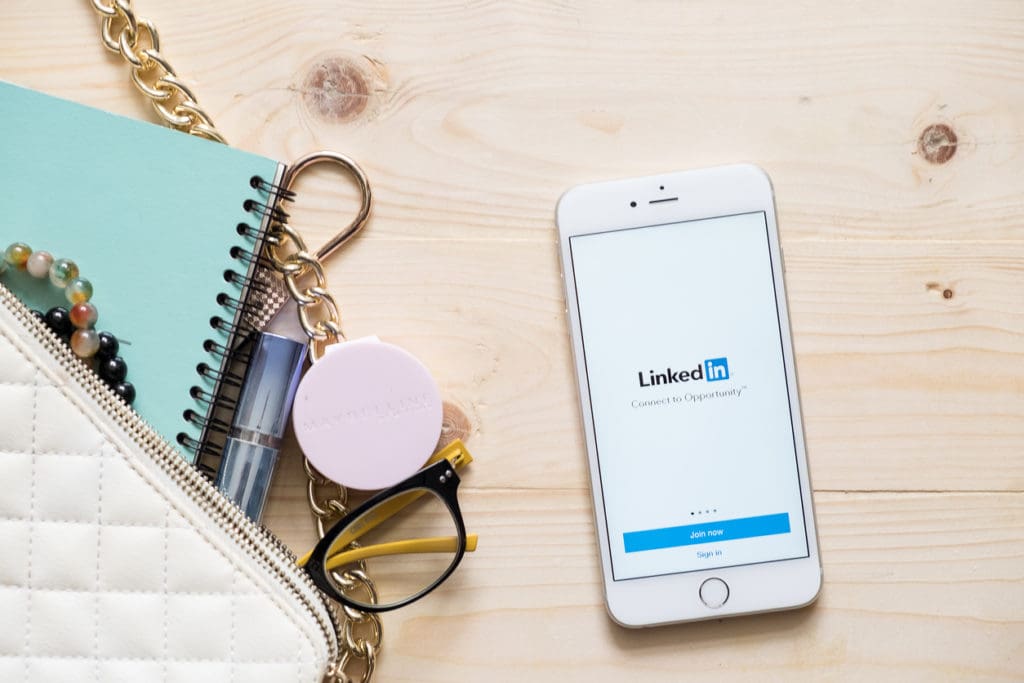
Google works off of links, even though these platforms that are hard to link out and give any kind of what some people like to say “link juice” to make things rank, but within the platform, if you have a lot of followers, connections, colleagues connected to you in LinkedIn, it's going to rank really well. You want more connections in all of those social media platforms in order to rank effectively for your name. That takes a little bit of time and work with each one.
Got you. Are there also things that people should specifically not be doing to make themselves easy prey for allegations or reputation issues? Obviously, the running joke may be don't post you drunk at your frat party or something like that if you don't want that to be public.
I'll only say that half-jokingly because a lot of people do that and it comes back to haunt them. Are there things that people do that come back to haunt them? That they really shouldn't be doing online? What would the advice be for here's my list of things to not do?
You know? That can be an endless list.
Yes.
There have been quite a few instances of people saying this photo of me from the past does not represent how I feel and how I act towards others. It's not really the true me. Or the things that people say. There's a sportscaster—just in the last few days—that was fired from making homophobic comments when his mic was live and wasn't aware of it. I wrote on Twitter, “Try to eliminate slurs from your speech because mics are live everywhere now. Video is live everywhere. Your worst moment is going to be documented now.”
I worked on one executive at a large financial firm on his reputation because he got arrested having a family fight in an airport. The charges were dropped but there were lots of videos. That started showing up. Remember that every single thing you do publicly now is likely to get recorded and can get uploaded either on purpose or accidentally. Curate your own life a little bit. Try to weed out some of that stuff.
If you have something way in the past, sometimes the best way is to just disclose it and get past it. I've worked on a few people that had connections with cults. There's a really horrific cult. You can see some of the documentaries on Netflix and elsewhere—the NXIVM cult that branded some women that were members of the cult and stuff. There's a prominent starlet from Hollywood that was involved in that.
The guy that owned it all owned a few different companies, though. Some folks have taken online vigilantes of trying to go out, name, and connect all of the people that used to work for him with that cult name. There are many employees of various companies that he had some investments in that had nothing to do with anything awful.
If you have that going on, you might just want to disclose it and say, “I knew nothing about this. I was connected in this way and this is the extent of it. I absolutely don't approve of this kind of behavior.” Disclose it and move on with life. Trying to keep something hidden is not the best thing.
Oftentimes, even in some of the cases I've worked on, people will sue, and then the Streisand effect happens. You try to suppress something and the action of trying to suppress it attracts a whole lot of attention to it and a whole lot more public stuff that you can't displace. You might be better off just trying to move on.
I'll give you a funny-not-funny example. My wife's name is Karen. It's been a new meme in the last year that has grown and grown like crazy. It started out with people that make ridiculous, over-the-top complaints as Karens. Now, it's grown to people that are gun-wielding, violent, racists. It just got worse and worse.
She feels like she wants to declare bankruptcy on her Karen name. She's now going by her middle name. She's like, “I get treated much better.” I go to places and tell them my wife is the complete opposite of a Karen. She's the most low-maintenance person I've ever known. She’s just so kind, gentle, polite, and would never do these things. And she's a Spanish teacher. She believes in people in other races and treating people's races equitably. She doesn't mind people using foreign languages in stores. She's the opposite. It's just kind of unfair that she suddenly got sucked into the category of Karens.
That's not one reputation that can be changed. Not her, but the name of Karen. That's (unfortunately) going to last a long time.
I've written before about what I call name collisions, where there's an accidental connection with you and something horrific because of your name; it's just coincidentally the same. There are quite a few different businesses out there that have names that just accidentally get sucked into the news one way or another.
Like Silk Road. It was a famous online dark web company that a lot of people do merchandising: trades for guns, violence, and drugs. But there's also a good reputation, healthcare industry company called Silk Road. There are a lot of situations like that. Like ISIS. There are many companies that have ISIS on their name. Some of them got really bad exposure and attention after the terrorist organization for ISIS really took off. I call that a name collision. Sometimes, you might save time, conflict, and trouble just by changing names, unfortunately.
I supposed in other situations aside from the name collision type of stuff, it might actually be legitimate reputation management. You just might change your name.
You know, I've had small companies call me up and they say, “I've got this horrible reputation thing that happened. Should I try to fix this? Should we spend time doing SEO and stuff to push it down, sue people, et cetera?” Lawsuits are expensive. No question. That's a little bit of a cost barrier. SEO sometimes can be cheaper; sometimes it may take just as long or longer. There's a cost associated with trying to recover a reputation that's gotten damaged.
I have told companies or individuals before, “This is a moment where you might consider changing the name. It's going to be a lower cost to you.” There's a cost in changing names. With really big companies, the cost can be millions and millions of dollars. In those cases, maybe it's not going to make sense, but there's definitely a situation where it can be worthwhile or less costly to just move on to a different name if you're able to.
I definitely know a few restaurants where we walk in there one day and the menu has a different name on it. There's a different name on the sign out front but everybody in the restaurant is exactly the same people who were at it when it was a different name. It was all the same dishes. I'm like, hmm. Did they get sued or was it a bad Yelp review? What happened? Why did you change your name?
That's funny. I have worked on some reputations of national restaurant chains before, too. There are some unfortunate things that could happen. It could be due to a franchise owner that's not managing very well. It could be just one rogue employee that does something crazy and posts some video or photo. Or, it can be that the chain itself has some policy problems that they need to fix.
One of my first things when I go to a big company, it's like, “Are there some areas of frequent conflict that you can maybe eliminate?” Then, we can work on the reputation.
I wonder about that sometimes, too. You walk into a restaurant and it suddenly changes its name, but everything else is the same. You’ve got to wonder what kind of issue they had.
Yup. Either reputation or name collision with some other business who's like, “Hey, that's our name.” You said lawsuits can get really expensive.
I have seen some restaurants in the news, but I’ve also seen some that I know locally in Texas that have changed their name in the past few years because of racist association of one kind or another. In most cases, I think it's really a good idea to just go ahead even if you have a long history and you weren't intentionally racist. If your name has heavy racial connotations of some kind, just change the name. Just move on rather than trying to fight that fight constantly and repeatedly.
I just recently saw a story on CNN about that where there is a word in a particular language that in some instances, it was a very positive word. A number of businesses around the world had used it as part of their business name. Someone from that community came forward and said that's technically the correct definition of that word. It's really, in common usage, incredibly derogatory and hateful. These businesses were like, well, we didn't know that. The translation dictionary says this. We didn't know that it was this horrible thing.
Some of the businesses were like, absolutely. We're going to change our name because that's not what we intended. We don't want to be associated with that. There were other businesses that said, we're going to keep the name because… whatever their list of reasons were.
I can see the challenges of you making what you think is a word and it turns out to be something unfortunate in another language.
I think it's better to get ahead of the curve if you can. Years ago, Aunt Jemima was not a name that's necessarily had a bigger problem. The more people got educated and the more we realized that that's not taken well, the more that has a whole lot of baggage that the company never wanted.
It's good to move on when you have anything like that showing up. Consider carefully. It's better to have a name that doesn't have any kind of stuff like that going on. You'd much rather be spending your time and your promotional dollars on doing something that promotes and grows your business rather than trying to stave off upsetting people.
Yeah. I think that's a great ending point for us today. Any parting advice that you have for people?
The assumption is that if you don't have a reputation problem and you're a great person, that you don't need to worry about it. Companies make these mistakes and individuals do, too. It's good to just go ahead and claim your name on social media platforms and have accounts there in case something comes up in the future. It doesn't cost much to get a personal website these days—a one-page website or whatnot. Just go out there and do it. Have these things set up in case you ever need them.
If you have a unique name, whether it's a business name or a personal name, you need to prepare your reputation some and protect it. It's much easier to protect upfront than it is to try to fix later on. All it takes is one crazy girlfriend, one crazy boyfriend, one really bad competitor, one crazy client, then you suddenly have a seriously bad reputation problem. Work on it proactively, work on it upfront, and avoid those things.
If you have a reputation problem going on, don't ignore it. Just try to address it. Be honest. Try to be good at what you do. If you made a mistake, admit to it and shape up. That's my best advice. Beyond that, it gets a lot more complicated, of course.
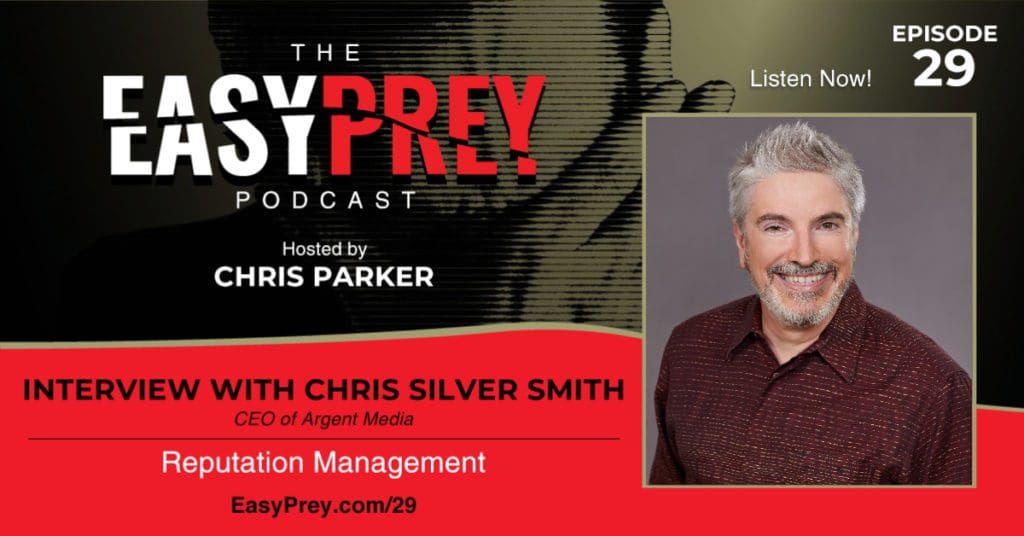

Leave a Reply